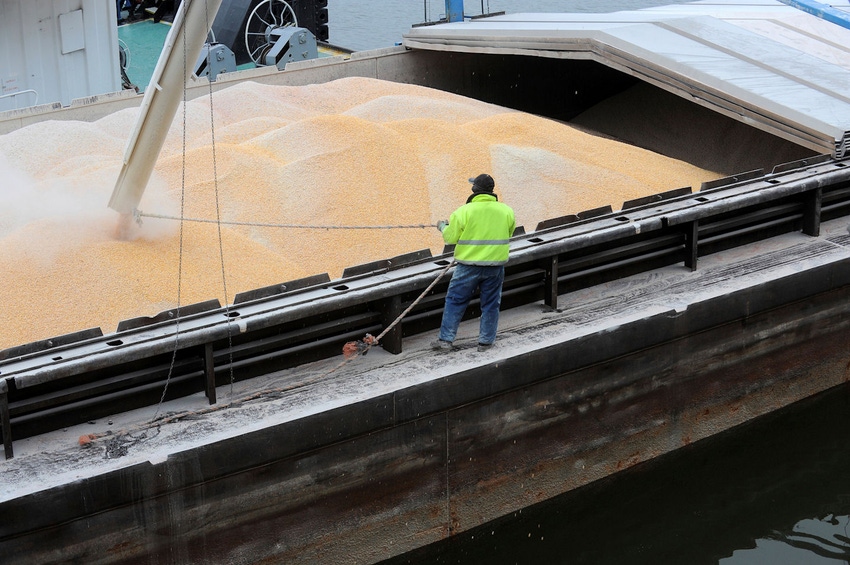Five-year reauthorization improves FGIS official inspection and weighing system.

The Senate unanimously passed the bipartisan U.S. Grain Standards Reauthorization Act of 2020 in action Nov. 16. The House still needs to act on the bill before it goes into effect.
The U.S. Grain Standards Reauthorization Act of 2020 passed out of the Senate Agriculture Committee on June 24. The bill -- authored by Senate Agriculture Committee chair Pat Roberts (R., Kan.) and ranking member Debbie Stabenow (D., Mich.) -- authorizes the Federal Grain Inspection Service (FGIS) of the U.S. Department of Agriculture to establish official marketing standards for certain grains and oilseeds. The covered crops are barley, canola, corn, flaxseed, oats, rye, sorghum, soybeans, sunflower seed, triticale, wheat and mixed grain.
FGIS establishes official marketing standards for grains and oilseeds under the authorization of the U.S. Grain Standards Act, which was first signed into law in 1916. The existing authorization law, which was enacted in 2015 and included provisions to ensure uninterrupted export inspections, expired Sept. 30.
“The Senate has unanimously approved the Grain Standards Reauthorization Act, which will allow America to continue fostering a healthy domestic grain market and positive relationships with our trading partners,” Roberts said. “As is tradition in the Senate Agriculture Committee, we worked in a bipartisan fashion to deliver certainty, predictability and transparency for the federal grain inspection system and its stakeholders.”
“As our farmers face unprecedented uncertainty and trade instability, it is vital that we maintain the integrity of our grain inspection system,” Stabenow said. “This bipartisan bill protects the interests of American farmers and ensures our credibility as a reliable producer of high-quality crops.”
The U.S. Grain Standards Reauthorization Act of 2020 has wide industry support from national and state agriculture groups.
“This legislation, which would reauthorize the U.S. Grain Standards Reauthorization Act for another five years, provides certainty while improving the official inspection and weighing system through more transparency, information sharing and better data,” National Grain & Feed Assn. (NGFA) president and chief executive officer Randy Gordon said. “This legislation is foundationally important in providing for official grain inspection and weighing services through the U.S. Department of Agriculture’s Federal Grain Inspection Service as well as that agency’s maintenance of the U.S. grain standards that are relied upon by buyers, sellers and end users to merchandise grains and oilseeds in domestic and international markets.”
In a June 23 support letter to committee leaders, NGFA and the North American Export Grain Assn. (NAEGA) supported reauthorizing all expiring provisions of the current law for another five years, including: the ability for Congress to appropriate funding for standardization and compliance activities that have broad societal benefits, including to farmers and consumers; authorization for the USDA Grain Inspection Advisory Committee to continue operating, and maintaining the current statutory limitation on the amount of money FGIS can spend on administrative costs not associated with direct inspection and weighing activities.
The U.S. Grain Standards Reauthorization Act of 2020 also includes several improvements NGFA and NAEGA advocated for that they said will promote increased data and information sharing to benefit the system and its users, including:
Requiring delegated state agencies to notify users of official inspection or weighing services at least 72 hours in advance of any intent to discontinue such services;
Ensuring that FGIS user fees are directed solely to inspection and weighing services;
Reporting requests for waivers, exceptions and intrinsic quality and food safety factors received and granted by FGIS, and
Directing FGIS to complete a comprehensive review of the current boundaries for the officially designated grain inspection agencies in the domestic marketplace.
NGFA and NAEGA also highlighted their concerns about ongoing non-tariff trade barriers that have restricted exports of U.S. grains and oilseeds, noting that the reauthorization bill retains the provision that prohibits the “use of false or misleading grade designations” on official grade certificates for U.S. grain exports.
According to a letter signed by several commodity groups, despite the significant impacts of tariffs on exports, U.S. commodities have maintained some competitiveness in the international market thanks, in part, to the premium international buyers place on the U.S. grain inspection system.
“Given the current uncertainty in trade agreements and many of the bearish factors working against U.S. farmers, it is critical we maintain one of our key advantages. Our customers, foreign and domestic, see tremendous value in our grain inspection system, and reauthorization of the Grain Standards Act will ensure this value continues for U.S. grain exports,” according to a letter signed by the American Farm Bureau Federation, American Soybean Assn., National Association of Wheat Growers, National Corn Growers Assn., National Sorghum Producers, National Sunflower Assn. and U.S. Canola Assn.
About the Author(s)
You May Also Like



.png?width=300&auto=webp&quality=80&disable=upscale)

